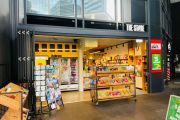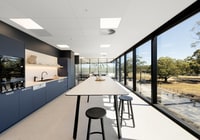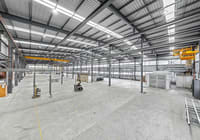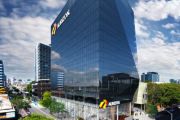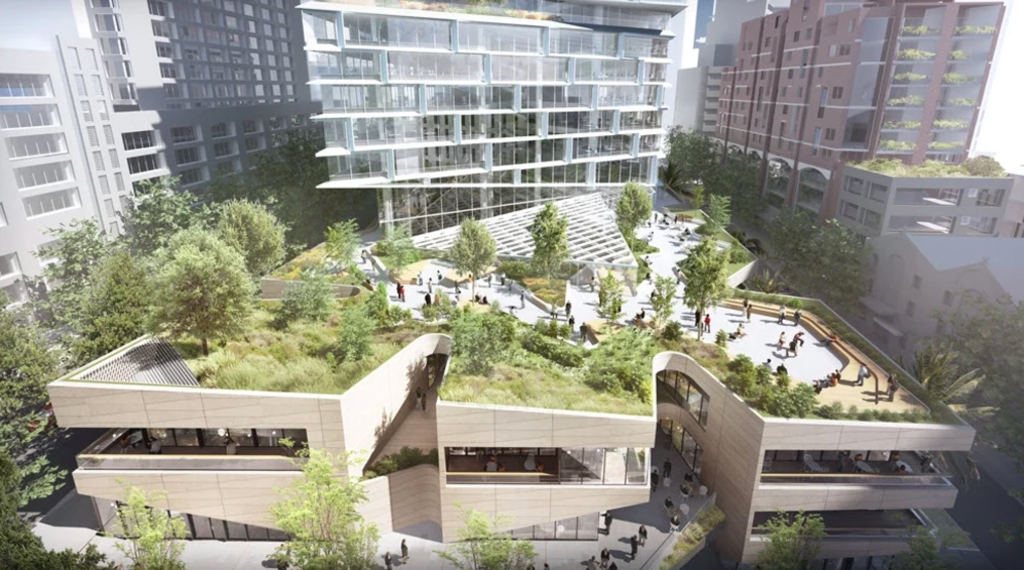
Return to the office a whole new ball game: bring in the COVID captain
No long tea-room chats or use of the communal crockery. Vast distances between desks will be the new normal when offices throw open the doors to staff for the first time since the onset of the coronavirus.
All the money spent in the past decade on creating the “office of the future” will be wasted as workers are made to keep their distance, instead of being encouraged to physically collaborate .
There will even be a new job created – the COVID captain – to ensure companies adhere to the national safety guidelines of keeping 1.5 metres apart.
Landlords are now working overtime with office managers and property experts to ensure all social distancing requirements will be met by the time workers are able to return from hibernation at home.
A study by Ernst & Young has estimated it will take about 30 per cent longer to catch a lift at peak times. That is likely to see more people bring in their own morning coffee and lunch, to avoid spending time loitering in the lobby.
Selina Short, managing partner for Oceania real estate, hospitality and construction at Ernst & Young, said this crisis is demanding a new juggling act of management teams with the “now, next and beyond” needing to be worked on simultaneously.
“Business are figuring out how to manage and support a large remote workforce; they are in the detail of how to bring people back into the office safely; and they are thinking about the long term impacts to the future of work,” Ms Short said.
The days of going to the ‘hang out’ zones, piling into a meeting room or even gathering for a birthday cake will all but disappear.
Hot desking is now a thing of the past under new government orders. Often touted end-of-trip facilities in an office-building basement may no longer be a drawcard.
Charter Hall chief executive David Harrison said rising unemployment and a slowing economy may result in slowing demand for office space in terms of expansion.
“Thirty years ago, the average workspace ratio per person was 25 square meters of office space. Now it’s around 10 square meters per person on average,”Mr Harrison said.
“I think it’s going to go back up to one person to 13 sq m. The trend towards activity-based working or agile workplaces will reverse and it will reverse very quickly.”
That change will be driven by concern about employees welfare, both physical and mental, in confined spaces.
Mr Harrison said the recovery from the coronavirus pandemic was likely to be “bouncy” for different industries.
“Dependent on the industry and sector, some will see a V-shaped recovery and some will experience a deep U-shaped recovery,” he said.
Cushman and Wakefield’s workplace solutions expert, Lisa Mhaya, said there are at least 40 different surfaces that are touched on the journey to, and once in, the office. These are the areas that will change working habits dramatically.
Ms Mhaya has been working with a number of businesses in the past few weeks and says landlords are adhering to the principles of the “6-feet office”.
“The major focus will be on distancing, installing sensors to monitor people numbers, crowd management for lifts, temperature testing and dedicated isolation rooms,” Ms Mhaya said.
“Some lesser known but high-impact changes will include the removal of all commonly used stationary; fewer meetings; decisions on who should continue to work from home based on demographics; creation of new roles in the office such as a COVID block-captain.”
For landlords, they will work with tenants to uphold the Environmental, Social and Governance (ESG) side of the business.
Luke Briscoe managing director office & logistics at AMP Capital, said there is no question that the way businesses use office space will change as a result of our recent work from home experience – but this doesn’t mean that it’s for the worse.
“Having discussed with many of our customers, the feedback is mixed, with some businesses indicating their intent to increase flexibility, while others reinforcing the need for social interaction and a business ‘town centre'”, Mr Briscoe said.
AMP Capital is undertaking a comprehensive survey of our 870 customers, where we will talk to their experience with working from home, their likely demand in the future and how COVID will change their office accommodation behaviours.
“At this early stage there is equal commentary between businesses needing less space to allow for flexibility, and more space as the move towards fixed seating and appropriate spacing between team members becomes the preference,” Mr Briscoe said.



